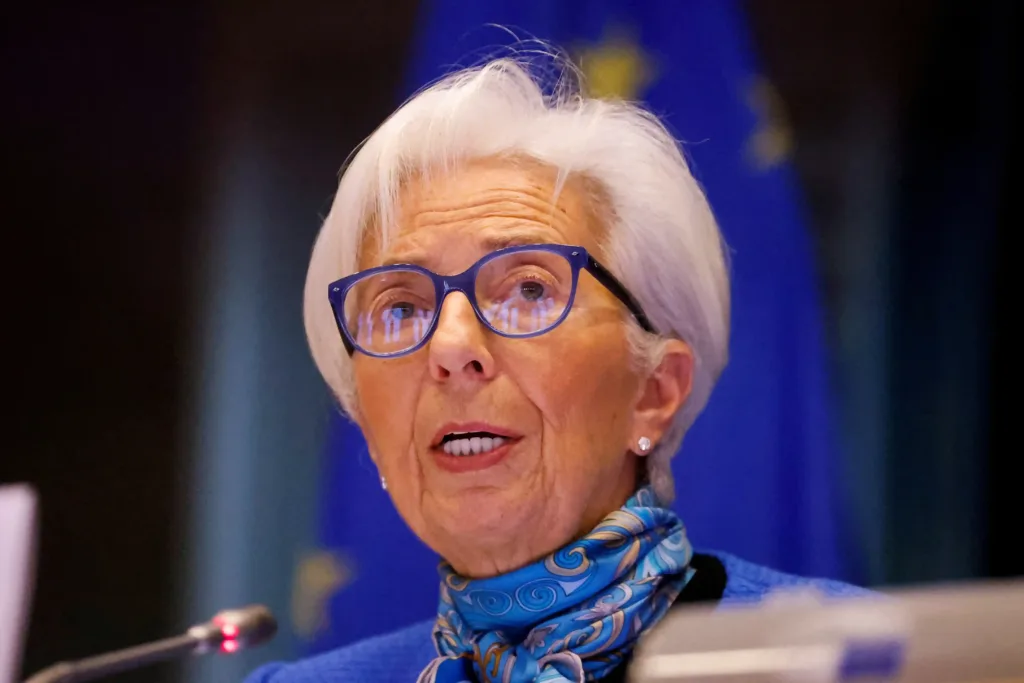Christine Lagarde’s recent caution signals a potential global economic fragmentation. Businesses and investors must adapt with strategic approaches amid uncertainties.
Table of Contents
As the world grapples with ongoing economic challenges, Christine Lagarde, Managing Director of the International Monetary Fund (IMF), has raised alarms about growing indications that the global economy is entering a phase of fragmentation. In her recent statement reported by CNBC on November 17, 2023, Lagarde highlighted key factors contributing to this concerning trend. This article explores the insights provided by Lagarde and delves into the potential implications for businesses and investors worldwide.
- Trade Tensions and Geopolitical Risks: Lagarde pointed to escalating trade tensions and geopolitical risks as significant contributors to the fragmentation of the global economy. Ongoing disputes among major economic powers have created an environment of uncertainty, impacting international trade and supply chains.
- Divergent Monetary Policies: The divergence in monetary policies among major economies has added to the challenges. Lagarde emphasized that variations in interest rates and policy approaches could lead to divergent economic paths, affecting global financial stability.
- Supply Chain Disruptions: The COVID-19 pandemic has exposed vulnerabilities in global supply chains. Lagarde highlighted that persistent disruptions in supply chains, exacerbated by the pandemic, are contributing to economic fragmentation. Businesses are re-evaluating their reliance on complex, interconnected supply networks.
- Shifts in Economic Power: The evolving landscape of economic power dynamics is another factor Lagarde mentioned. Emerging economies are gaining prominence, altering traditional economic structures. This shift can result in a redistribution of economic influence, impacting global economic integration.
lagarde’s suggestion on Implications and Strategies:
Understanding the potential ramifications of a fragmented global economy is crucial for businesses and investors. Increased volatility, uncertainties, and risks may necessitate adaptive strategies. Here are key considerations:
- Risk Management: Businesses should enhance their risk management practices to navigate uncertainties arising from trade tensions, geopolitical risks, and supply chain disruptions. Diversifying suppliers and markets may mitigate potential risks.
- Strategic Partnerships: Exploring strategic partnerships and collaborations can help businesses adapt to changing economic dynamics. Building resilient partnerships can provide stability amid geopolitical uncertainties.
- Market Research and Analysis: Investors should conduct thorough market research and analysis to identify emerging opportunities in regions experiencing economic growth. Understanding the dynamics of evolving economic power can guide investment decisions.
- Agility and Innovation: Companies need to foster agility and innovation to adapt to rapidly changing economic landscapes. Investing in technology and staying ahead of market trends can position businesses to thrive despite global economic challenges.
Christine Lagarde’s warning about the increasing signs of global economic fragmentation underscores the need for proactive measures by businesses and investors. By staying informed, embracing adaptability, and implementing strategic approaches, stakeholders can navigate the complexities of a changing global economic landscape.









1 thought on “Lagarde Warns of Increasing Signs that the Global Economy is Fragmenting in 2023-24”